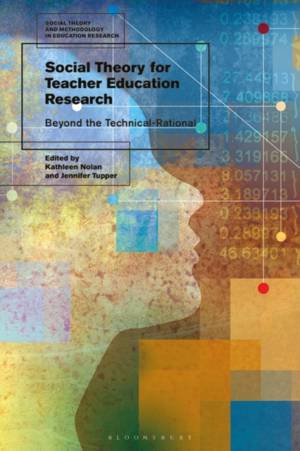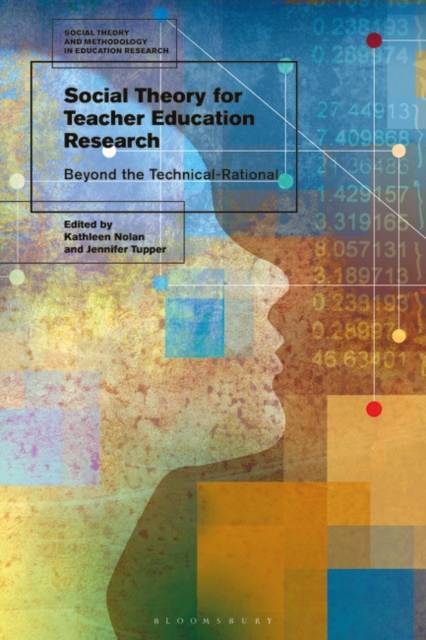
- Retrait gratuit dans votre magasin Club
- 7.000.000 titres dans notre catalogue
- Payer en toute sécurité
- Toujours un magasin près de chez vous
- Retrait gratuit dans votre magasin Club
- 7.000.0000 titres dans notre catalogue
- Payer en toute sécurité
- Toujours un magasin près de chez vous
Social Theory for Teacher Education Research
Beyond the Technical-Rational
Description
Traditionally, teacher education research theory and practice have had a technical-rational focus on productions of knowledge, skills, performance and accountability. Such a focus serves to (re)produce current educational systems instead of noticing and critiquing the wider modes of domination that permeate schools and school systems. In Social Theory for Teacher Education Research, Kathleen Nolan, Jennifer Tupper and the contributors make arguments for drawing on social theories to inform research in teacher education - research that moves the agenda beyond technical-rational concerns toward building a critically reflexive stance for noticing and unpacking the socio-political contexts of schooling.
The theories discussed include Actor-Network Theory (ANT), Cultural Historical Activity Theory (CHAT) and la didactique du plurilinguisme, and social theorists covered include Barad, Bernstein, Bourdieu, Braidotti, Deleuze, Foucault, Heidegger, and Nussbaum. The chapters in this book make explicit how innovative social theory-driven research can challenge and change teacher education practices and the learning experiences of students.Spécifications
Parties prenantes
- Editeur:
Contenu
- Nombre de pages :
- 288
- Langue:
- Anglais
- Collection :
Caractéristiques
- EAN:
- 9781350086395
- Date de parution :
- 05-09-19
- Format:
- Livre relié
- Format numérique:
- Genaaid
- Dimensions :
- 160 mm x 236 mm
- Poids :
- 589 g

Les avis
Nous publions uniquement les avis qui respectent les conditions requises. Consultez nos conditions pour les avis.





